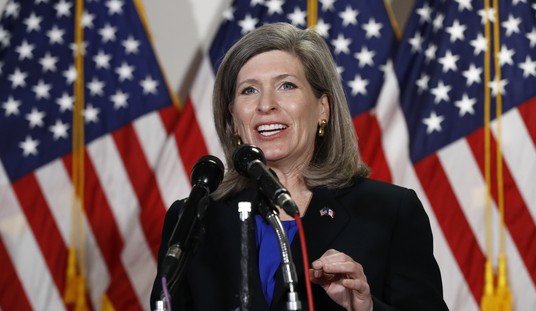A minor bummer for Pence given his strong performance, but the ratings downturn from 2012 was probably inevitable. This was the first veep debate since 2000 to feature two politicians with low public profiles. In 2004 Cheney was the sitting VP; four years ago Biden was. In between, in 2008, you had massive public curiosity about Sarah Palin, producing the biggest audience for a vice presidential debate in history at 70 million people. Last night’s contest between Kaine and Pence drew barely half that. That’s what happens when you have two little-known vanilla candidates competing with the galaxy of cable channels, websites, and streaming services that have flourished in the past eight years.
I wonder if the sheer star power of Trump and Hillary Clinton contributed to the decline too. The more random the people at the top of the tickets are, the more inclined you might be to watch the VP debate to try to develop a better sense of where each party stands. The more A-list the presidential nominees are, the less you might care about the bottom of the tickets. Trump versus Clinton, in terms of sheer celebrity, is Ali versus Frazier (if Ali and Frazier were both lousy boxers whom most of the public disliked). When you’ve got a fight like that as top billing, who cares what the undercard is?
The total for the four major broadcast networks, PBS and four cable news channels that reported data comes to 37 million viewers. An official total will be issued by Nielsen later Wednesday…
The Sept. 26 meeting between Trump and Clinton had an average audience of 84 million viewers, a record for a presidential debate…
Based on the early data, Kaine vs. Pence is down about 28% from the 2012 vice presidential debate when 51.4 million viewers watched Biden face off against his Republican challenger, Rep. D. Paul Ryan of Wisconsin. The last vice presidential debate to score under 40 million viewers was the meeting between Republican Dick Cheney and Democrat Joe Lieberman in 2000, which had 29 million viewers.
Now I’m curious about what sort of decline we’ll see for Trump/Clinton II on Sunday. The first debate each cycle usually draws the biggest ratings due to the sheer novelty of the two candidates finally being together onstage, then the audience shrinks a bit for debates two and three. In 2012, the first Obama/Romney contest drew 67 million with only a very slight drop-off for the second one and then a somewhat larger dip for the third. Sunday’s debate might see a steeper decline than four years ago, partly because it’s a weekend night, partly because it’s up against a football game between two teams with huge followings (Giants and Packers), and partly because the ratings bar set by Trump and Clinton in the first debate was so high. But I don’t know — the intrigue surrounding Trump’s performance at these things is so thick that the curiosity factor might overwhelm all of that. Some people who wouldn’t otherwise watch will tune in wondering if he can do better on his second try than he did last week, others will tune in hoping that Clinton prods him into having a full-blown meltdown replete with “cankles” jokes. A reputation for being mercurial isn’t a good quality in a president but it’s a pretty sweet attribute when you’re trying to draw a reality-show audience.
Here he is today praising Mike Pence for his performance last night. Whether it’s true or not that Trump felt upstaged and was privately peeved at Pence for not defending some of his more controversial statements, it was really, really stupid for anyone to think he wouldn’t celebrate the guy publicly. He’s not so mercurial that he’s going to attack his own VP nominee. I think.







Join the conversation as a VIP Member